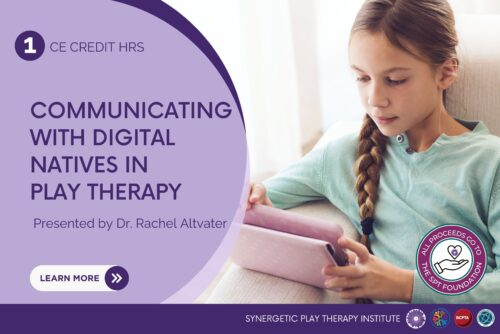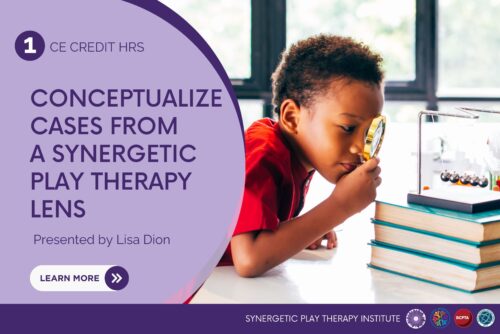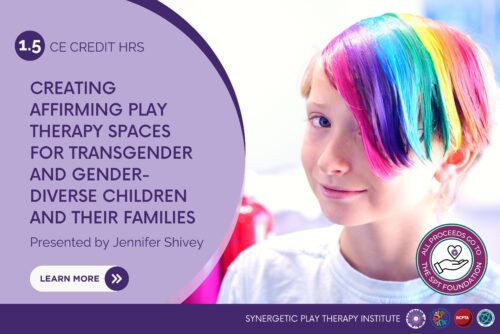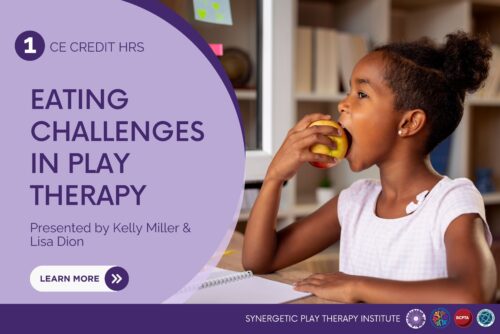-
 1 time payment for: Christine Nicholson 750.00 AUD [aelia_currency_selector_widget title="Select your currency based on the retreat location you would like to attend and wait for the page to refresh before adding to cart." widget_type="dropdown"] For example: If you reside in the US but want to attend the retreats in Canada you will choose the Canadian Currency, wait for the page to refresh, and then select your plan to add to your cart.
1 time payment for: Christine Nicholson 750.00 AUD [aelia_currency_selector_widget title="Select your currency based on the retreat location you would like to attend and wait for the page to refresh before adding to cart." widget_type="dropdown"] For example: If you reside in the US but want to attend the retreats in Canada you will choose the Canadian Currency, wait for the page to refresh, and then select your plan to add to your cart. -
 In today’s digital era, children’s play has expanded into new realms, where they engage, connect, and communicate in transformative ways. To support young clients effectively, play therapists must understand and embrace the evolving world of digital play. This insightful course with Dr. Rachel Altvater explores how the digital landscape shapes children’s engagement, self-expression, and identity. Starting with a reflection on your own perspectives about digital native culture, you’ll dive into how digital environments influence children and adolescents, equipping you to meet them where they are. Through practical strategies, you’ll learn to connect with clients in their digital spaces, foster meaningful therapeutic relationships, and seamlessly integrate digital tools into your play therapy practice. The session also examines the vital role of digital identity, uncovering how this space serves as more than entertainment—it’s where young clients form relationships, build resilience and navigate their world. By the end of this course, you’ll walk away with fresh insights and actionable techniques to strengthen the therapeutic alliance, deepen connections, and achieve meaningful outcomes with the digital natives you serve.
In today’s digital era, children’s play has expanded into new realms, where they engage, connect, and communicate in transformative ways. To support young clients effectively, play therapists must understand and embrace the evolving world of digital play. This insightful course with Dr. Rachel Altvater explores how the digital landscape shapes children’s engagement, self-expression, and identity. Starting with a reflection on your own perspectives about digital native culture, you’ll dive into how digital environments influence children and adolescents, equipping you to meet them where they are. Through practical strategies, you’ll learn to connect with clients in their digital spaces, foster meaningful therapeutic relationships, and seamlessly integrate digital tools into your play therapy practice. The session also examines the vital role of digital identity, uncovering how this space serves as more than entertainment—it’s where young clients form relationships, build resilience and navigate their world. By the end of this course, you’ll walk away with fresh insights and actionable techniques to strengthen the therapeutic alliance, deepen connections, and achieve meaningful outcomes with the digital natives you serve. -
 The Synergetic Play Therapy Institute in collaboration with PIP Solutions presents “Conceptualizing Cases from a Synergetic Play Therapy Lens”. Translating a right brain play experience into a left brain conceptualization is not an easy task. Play therapists often grapple with a sense of uncertainty when trying to comprehend a child’s unique therapeutic progression and assessing whether goals are being achieved. This course, led by Lisa Dion, aims to address this issue by introducing a structured framework derived from Synergetic Play Therapy. Students will gain insights into how to conceptualize cases effectively and apply this framework to enhance the efficacy of their therapeutic interventions.
The Synergetic Play Therapy Institute in collaboration with PIP Solutions presents “Conceptualizing Cases from a Synergetic Play Therapy Lens”. Translating a right brain play experience into a left brain conceptualization is not an easy task. Play therapists often grapple with a sense of uncertainty when trying to comprehend a child’s unique therapeutic progression and assessing whether goals are being achieved. This course, led by Lisa Dion, aims to address this issue by introducing a structured framework derived from Synergetic Play Therapy. Students will gain insights into how to conceptualize cases effectively and apply this framework to enhance the efficacy of their therapeutic interventions. -
 Transgender and gender-diverse children face unique challenges in navigating their identities and experiences. Their families face challenges, too, but can often be fearful of voicing them due to worries about how others may perceive them. Clinicians are often well meaning but can do unintended harm due to the blind spots they are not aware of when working with this population. Play therapy offers a dynamic and effective approach to support these children and their families in understanding and expressing themselves in a safe and affirming environment, given the appropriate knowledge offered by the clinician. This workshop aims to equip therapists with the knowledge, skills, and confidence necessary to provide effective and affirming play therapy for transgender and gender-diverse children - and their families! Scroll down for all of the course details!
Transgender and gender-diverse children face unique challenges in navigating their identities and experiences. Their families face challenges, too, but can often be fearful of voicing them due to worries about how others may perceive them. Clinicians are often well meaning but can do unintended harm due to the blind spots they are not aware of when working with this population. Play therapy offers a dynamic and effective approach to support these children and their families in understanding and expressing themselves in a safe and affirming environment, given the appropriate knowledge offered by the clinician. This workshop aims to equip therapists with the knowledge, skills, and confidence necessary to provide effective and affirming play therapy for transgender and gender-diverse children - and their families! Scroll down for all of the course details! -
 This 1.5-hour recorded webinar, in the form of a roundtable discussion, delves into the evolving landscape of diversity, inclusion, and cultural awareness in mental health, exploring how to create a more inclusive and culturally sensitive clinical practice. Led by Lisa Dion, guest panelists Marshall Lyles, Liliana Baylon, and Robert Jason Grant will share their insights and expertise on a range of essential topics, fostering a deeper understanding of the role culture plays in the therapy process, embracing neurodiversity, and creating inclusive play spaces to cater to individual needs. *The course is provided by the Synergetic Play Therapy Foundation. The Synergetic Play Therapy Foundation is dedicated to helping make play therapy trainings accessible and affordable to clinicians worldwide and to funding research initiatives in Synergetic Play Therapy. The Synergetic Play Therapy Foundation provides scholarships to clinicians seeking post-graduate training in Synergetic Play Therapy or another play therapy model of their choosing. Scholarships are funded through donations from webinars, donors, and supporters of Play Therapy. By purchasing this course, you are making a direct donation to the Synergetic Play Therapy Foundation. All proceeds will contribute to future scholarships and to the foundation itself! Please scroll down for course details and objectives.
This 1.5-hour recorded webinar, in the form of a roundtable discussion, delves into the evolving landscape of diversity, inclusion, and cultural awareness in mental health, exploring how to create a more inclusive and culturally sensitive clinical practice. Led by Lisa Dion, guest panelists Marshall Lyles, Liliana Baylon, and Robert Jason Grant will share their insights and expertise on a range of essential topics, fostering a deeper understanding of the role culture plays in the therapy process, embracing neurodiversity, and creating inclusive play spaces to cater to individual needs. *The course is provided by the Synergetic Play Therapy Foundation. The Synergetic Play Therapy Foundation is dedicated to helping make play therapy trainings accessible and affordable to clinicians worldwide and to funding research initiatives in Synergetic Play Therapy. The Synergetic Play Therapy Foundation provides scholarships to clinicians seeking post-graduate training in Synergetic Play Therapy or another play therapy model of their choosing. Scholarships are funded through donations from webinars, donors, and supporters of Play Therapy. By purchasing this course, you are making a direct donation to the Synergetic Play Therapy Foundation. All proceeds will contribute to future scholarships and to the foundation itself! Please scroll down for course details and objectives. -
 Helping children learn how to regulate is essential, but without first strengthening the child's interoceptive sense, regulation may not be successful. This experiential workshop offers various opportunities to explore how play can develop this fundamental part of the sensory system. As play therapists, there is an understanding that regulation and co-regulation are essential skills that must be developed in order to have successful relationships and manage emotions, and are essential for trauma integration; however, what many play therapists may not fully understand is that there is a prerequisite that needs to be in place for regulation skills to be effective. What has been understood for years in the world of Occupational Therapy is now becoming a primary focus of education for play therapists. This important understanding is that the child’s interoceptive sense, the 8th sensory system that is responsible for letting the brain know how the body is doing, must be developed first before a child can successfully regulate and co-regulate. Without the development and strengthening of the interoceptive sense, a child may have all kinds of regulation knowledge and tools but will not be able to read their own body cues to know when to use any of them. Examples such as knowing when to use the bathroom, when to take a deep breath, when to ask for help, the ability to read non-verbal cues, knowing when emotions are feeling overwhelming, etc. all rely on interoception. This playful workshop is designed to help play therapists learn what the interoceptive sense is and how to use play to develop interoception in their child clients setting the stage for successful regulation and co-regulation. Play therapists will have fun experientially exploring this fundamental part of the sensory system! (This course is a recording of a 2 hour live webinar held in November 2023) See course details below.
Helping children learn how to regulate is essential, but without first strengthening the child's interoceptive sense, regulation may not be successful. This experiential workshop offers various opportunities to explore how play can develop this fundamental part of the sensory system. As play therapists, there is an understanding that regulation and co-regulation are essential skills that must be developed in order to have successful relationships and manage emotions, and are essential for trauma integration; however, what many play therapists may not fully understand is that there is a prerequisite that needs to be in place for regulation skills to be effective. What has been understood for years in the world of Occupational Therapy is now becoming a primary focus of education for play therapists. This important understanding is that the child’s interoceptive sense, the 8th sensory system that is responsible for letting the brain know how the body is doing, must be developed first before a child can successfully regulate and co-regulate. Without the development and strengthening of the interoceptive sense, a child may have all kinds of regulation knowledge and tools but will not be able to read their own body cues to know when to use any of them. Examples such as knowing when to use the bathroom, when to take a deep breath, when to ask for help, the ability to read non-verbal cues, knowing when emotions are feeling overwhelming, etc. all rely on interoception. This playful workshop is designed to help play therapists learn what the interoceptive sense is and how to use play to develop interoception in their child clients setting the stage for successful regulation and co-regulation. Play therapists will have fun experientially exploring this fundamental part of the sensory system! (This course is a recording of a 2 hour live webinar held in November 2023) See course details below. -
 Eating challenges in children can show up in many ways. From the refusal to eat to eating too much, underneath often lies the need for perfectionism and control. Helping kids take these challenges off their plates involves offering choices and uncovering co-existing issues, as well as providing parental support. This course takes a look at this important struggle.
Eating challenges in children can show up in many ways. From the refusal to eat to eating too much, underneath often lies the need for perfectionism and control. Helping kids take these challenges off their plates involves offering choices and uncovering co-existing issues, as well as providing parental support. This course takes a look at this important struggle. -
 Eating challenges in children can show up in many ways. From the refusal to eat to eating too much, underneath often lies the need for perfectionism and control. Helping kids take these challenges off their plates involves offering choices and uncovering co-existing issues, as well as providing parental support. This course takes a look at this important struggle.
Eating challenges in children can show up in many ways. From the refusal to eat to eating too much, underneath often lies the need for perfectionism and control. Helping kids take these challenges off their plates involves offering choices and uncovering co-existing issues, as well as providing parental support. This course takes a look at this important struggle. -
 Every therapist has been there - in a session with a child who doesn't want to come in the room, a child who doesn't want to do the task, a child who only wants to avoid the issue. This webinar explores what to do when a child client's language and behavior say "no." Join us as we explore resistance, with a focus on differentiating resistance from avoidance and differentiating resistance from the dorsal collapse in the nervous system. Emotional flooding is explored as well.
Every therapist has been there - in a session with a child who doesn't want to come in the room, a child who doesn't want to do the task, a child who only wants to avoid the issue. This webinar explores what to do when a child client's language and behavior say "no." Join us as we explore resistance, with a focus on differentiating resistance from avoidance and differentiating resistance from the dorsal collapse in the nervous system. Emotional flooding is explored as well.

